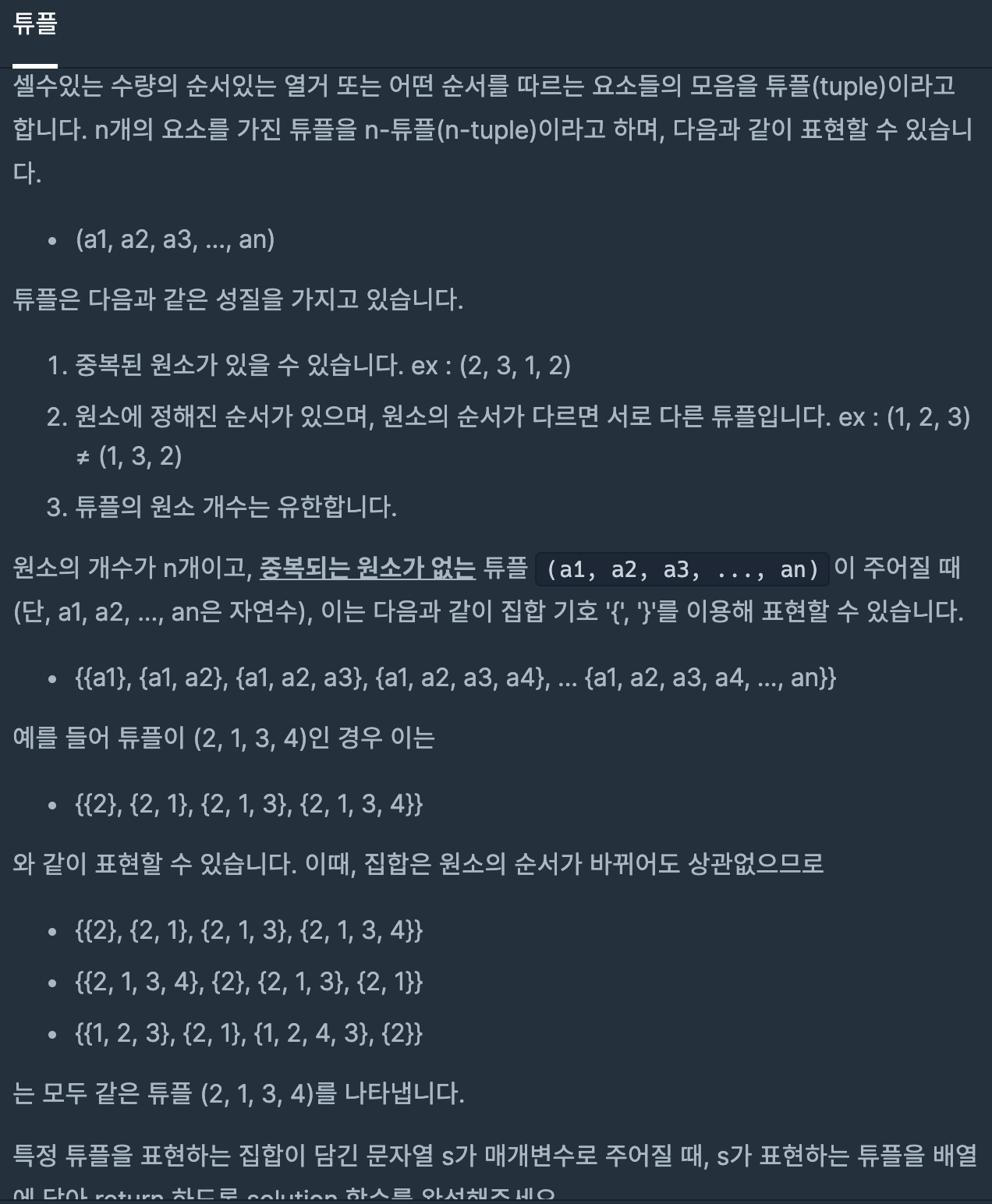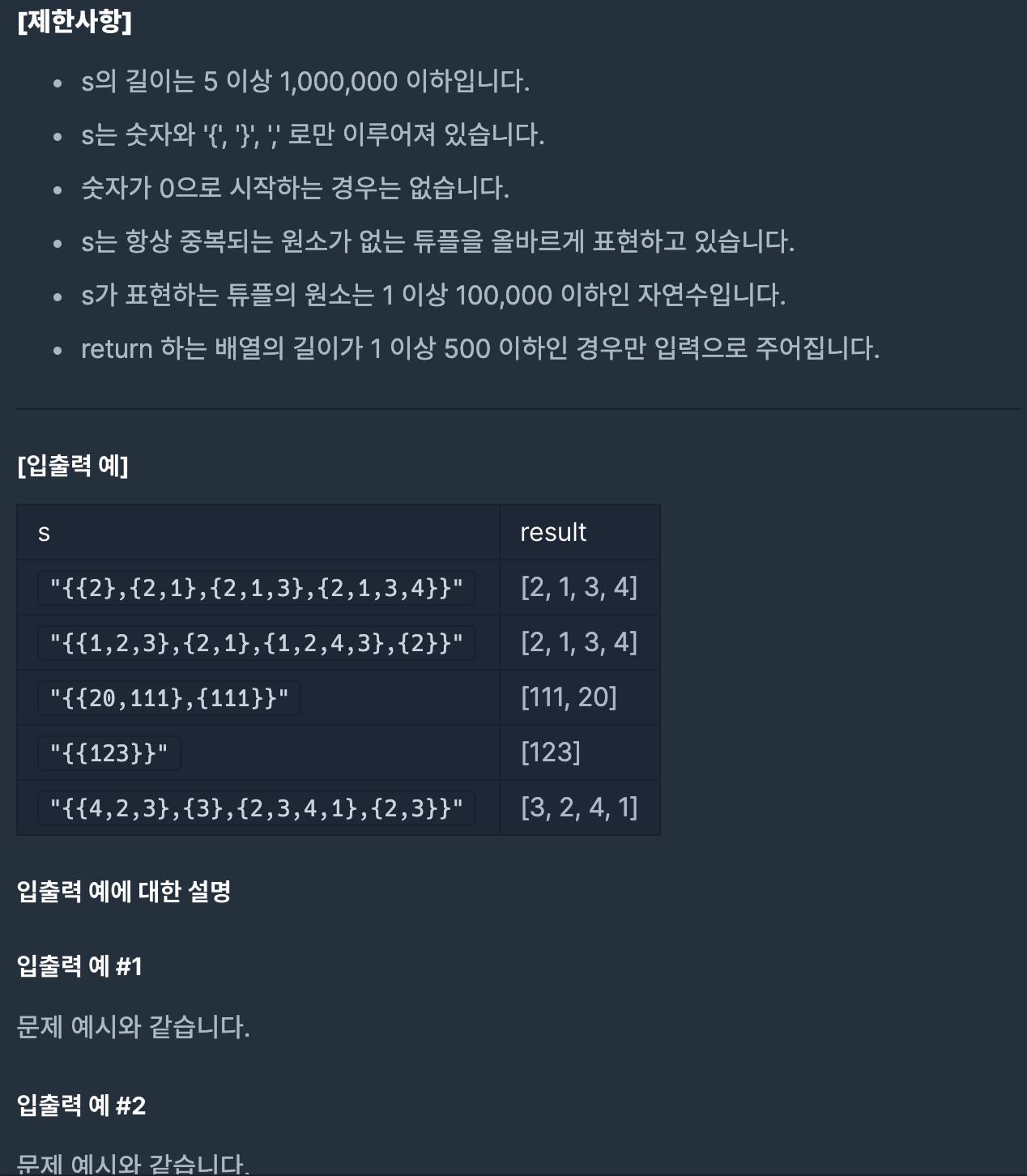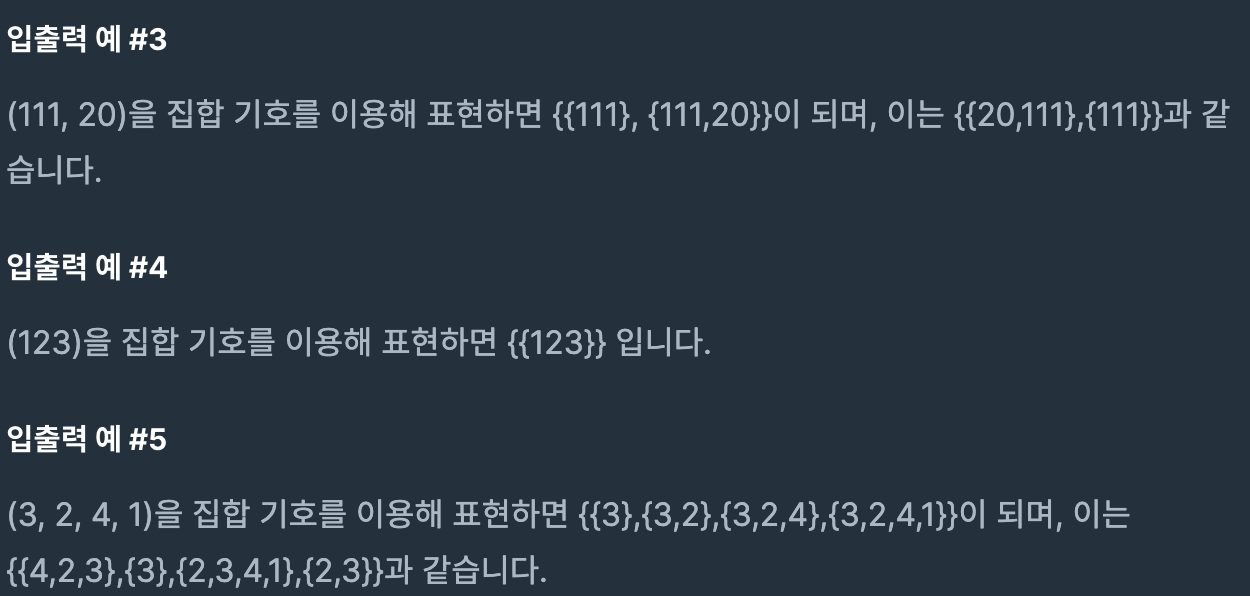


https://programmers.co.kr/learn/courses/30/lessons/64065
문제풀이
{,}를 start,end로서 받아, 문자열 "{{2},{2,1},{2,1,3},{2,1,3,4}}"에서 길이를 기준으로 오름차순해서 array=['2', '2,1', '2,1,3', '2,1,3,4']로 변환해준다.
array에서 ,를 기준으로 분할하여 array2=[['2'], ['2', '1'], ['2', '1', '3'], ['2', '1', '3', '4']]로 만들어준다.
이제 각 리스트를 돌면서 안들어간 값만 차례대로 넣어준다.
더 간단한 코드의 경우 ['2', '2,1', '2,1,3', '2,1,3,4']로 변환해주는 과정을
s1 = s.lstrip('{').rstrip('}').split('},{')으로 단순화 가능하다.
그 이후의 작업은 동일하다.
소스코드
def solution(s):
start,end=-1,0
array=[]
temp=[]
for i in s:
if i=="{":
start+=1
elif i=="}":
end+=1
if start==end:
array.append("".join(temp))
temp=[]
else:
if start>end:
temp.append(i)
array=sorted(array, key=lambda x:len(x))
#print(array)
array2=[]
for i in array:
array2.append(list(i.split(",")))
#print(array2)
result=[]
for i in array2:
for j in i:
if int(j) not in result:
result.append(int(j))
return (result)더 간단한 코드
def solution(s):
answer = []
s1 = s.lstrip('{').rstrip('}').split('},{')
#print(s1)
new_s = []
for i in s1:
new_s.append(i.split(','))
new_s.sort(key = len)
for i in new_s:
for j in range(len(i)):
if int(i[j]) not in answer:
answer.append(int(i[j]))
return answer
